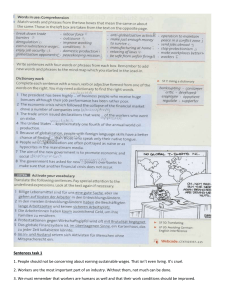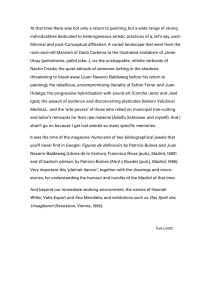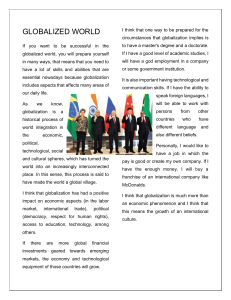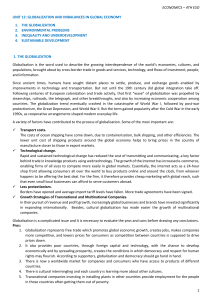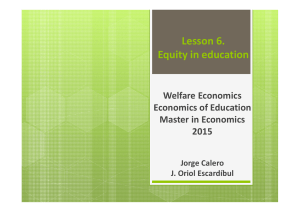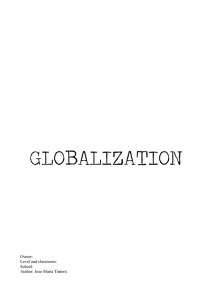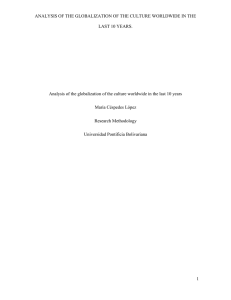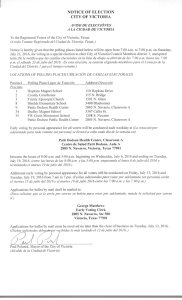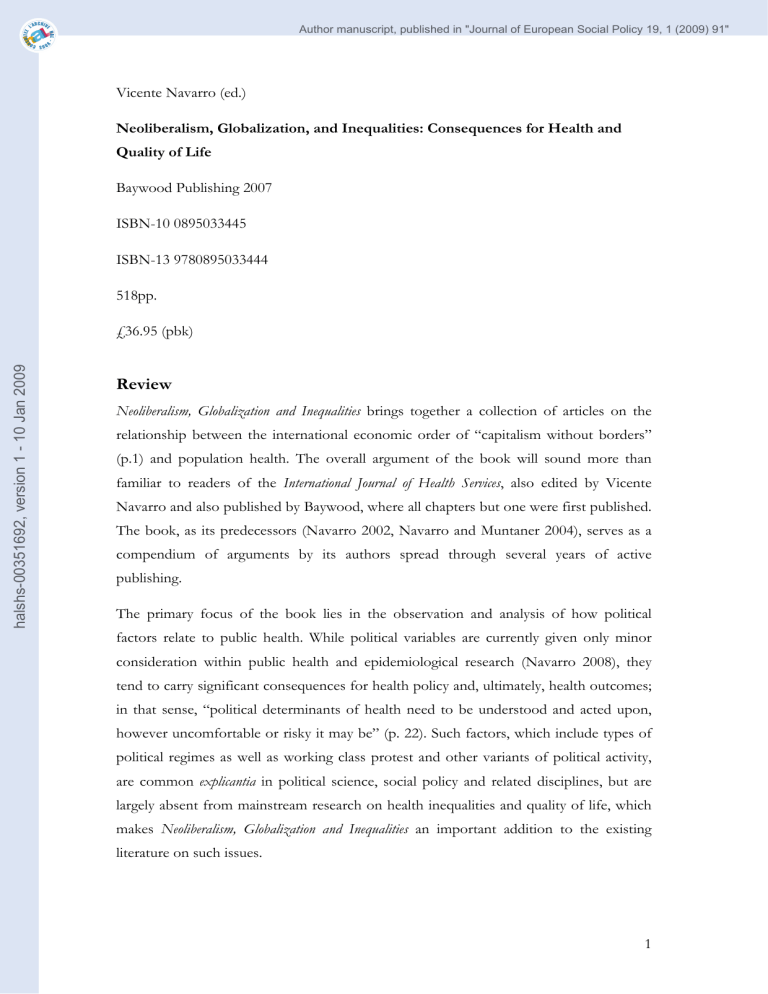
Author manuscript, published in "Journal of European Social Policy 19, 1 (2009) 91" Vicente Navarro (ed.) Neoliberalism, Globalization, and Inequalities: Consequences for Health and Quality of Life Baywood Publishing 2007 ISBN-10 0895033445 ISBN-13 9780895033444 518pp. halshs-00351692, version 1 - 10 Jan 2009 £36.95 (pbk) Review Neoliberalism, Globalization and Inequalities brings together a collection of articles on the relationship between the international economic order of “capitalism without borders” (p.1) and population health. The overall argument of the book will sound more than familiar to readers of the International Journal of Health Services, also edited by Vicente Navarro and also published by Baywood, where all chapters but one were first published. The book, as its predecessors (Navarro 2002, Navarro and Muntaner 2004), serves as a compendium of arguments by its authors spread through several years of active publishing. The primary focus of the book lies in the observation and analysis of how political factors relate to public health. While political variables are currently given only minor consideration within public health and epidemiological research (Navarro 2008), they tend to carry significant consequences for health policy and, ultimately, health outcomes; in that sense, “political determinants of health need to be understood and acted upon, however uncomfortable or risky it may be” (p. 22). Such factors, which include types of political regimes as well as working class protest and other variants of political activity, are common explicantia in political science, social policy and related disciplines, but are largely absent from mainstream research on health inequalities and quality of life, which makes Neoliberalism, Globalization and Inequalities an important addition to the existing literature on such issues. 1 The main argument of the book is that two interconnected hegemonic phenomena, neoliberalism and globalization, “are adversely affecting the human development of our population” (p. 6). Neoliberalism is defined as the assault on the post-war consensus that serves as “the ideology and practice of the dominant classes of the developed and developing worlds alike” (p. 14), and which visible consequences, market deregulation and state retrenchment, coexist with the internationalization of economic activities. The detrimental effect of neoliberalism and globalization on essential aspects of human societies (poverty, inequality, health) is then carefully dissected along the five hundred pages and twenty-two chapters of the book, starting with general considerations on neoliberalism, globalization and inequality (Parts I, II, III, and IV), followed by regional halshs-00351692, version 1 - 10 Jan 2009 case studies of Europe, the United States, Latin America and Africa (Parts V, VI, VII and VIII) and finally by a critique of “proposed solutions to health and social problems” as formulated by WHO Commissions and by Jeffrey Sachs in his book The End of Poverty (Part V). The overall conclusion is that neoliberalism is evidently not benefitting to all on the planet; on the contrary, some of the initiatives led by international organizations under the flag of development tend to be counter-productive in many contexts, such as the Poverty Reduction Strategy Papers introduced by the World Bank and the International Monetary Fund in 1999, which ultimately reduced health service expenditure in several African countries (p. 354). A further paradox in the current global state of affairs comes from the framing of the United States as an exemplar for other countries, which several authors point out as a radically counter-intuitive conclusion of the empirical study of American social and health policy (Chapters 10-12). Finally, chapters by Debabar Banerji and Vicente Navarro lead to believe that the World Health Organization currently operates within instead of against the neoliberal policy paradigm set by the international organizations that support the Washington consensus (Chapters 19-21), which can be interpreted as a departure from its previous engagements, and in particular a “retreat” from the Alma Ata Declaration of 1978 on primary health care (p. 454). The collected findings of the book effectively convey to the reader some of the fundamental antipathy to neoliberalism that drives the approach defended by Vicente Navarro and others, like David Coburn (2004). Within the wider literature on health inequalities, the book supports the efforts to reinstate materialist approaches within epidemiological research, in opposition to the ‘Third Way’ perspective that substitutes 2 psychosocial explanations anchored in ‘social capital/cohesion’ to structural explanations of health inequalities (Muntaner et al. 2001). Neoliberalism, Globalization and Inequalities effectively contributes to this research effort by emphasizing the enduring effect of class relations on global health and social inequality. References Coburn, D. (2004) “Beyond the Income Inequality Hypothesis: Class, Neo-Liberalism, and Health Inequalities”, Social Science and Medicine, 58 (1): 41-56. Navarro, V. and Muntaner, C. (eds) (2004) Political and Economic Determinants of Population halshs-00351692, version 1 - 10 Jan 2009 Health and Well-Being: Controversies and Developments. Amityville: Baywood. Navarro, V. (ed.) (2002) The Political Economy of Social Inequalities: Consequences for Health and Quality of Life. Amityville: Baywood. Navarro, V. (2008) “Politics and Health: A Neglected Area of Research,” European Journal of Public Health, forthcoming. Muntaner, C., Lynch, J. and Smith, G. D. (2001) “Social Capital, Disorganized Communities, and the Third Way: Understanding the Retreat from Structural Inequalities in Epidemiology and Public Health,” International Journal of Health Services, 31 (2): 213-237. Author François Briatte Institute of Political Studies University of Grenoble [email protected] 3
